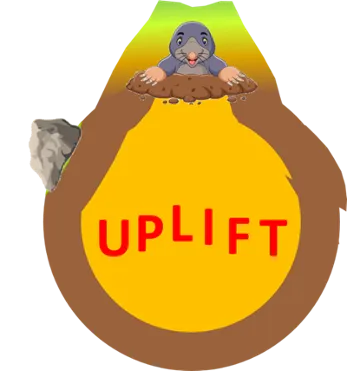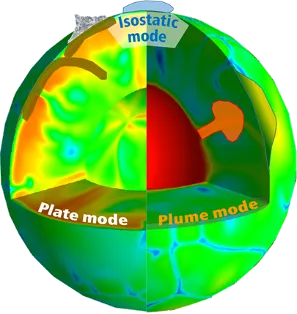


DFG Research Training Group GRK 2698

Geophysical modelling of vertical motion processes constrained by geodetic and geological observations (UPLIFT)
The Research Training Group (RTG) entitled “Geophysical modelling of vertical motion processes constrained by geodetic and geological observations (UPLIFT)” is going to be established at the Technical University of Munich (TUM) and the Ludwig-Maximilians-Universität (LMU) München under the auspices of the Munich GeoCenter and will start in April 2022. Funded by the German Research Foundation (DFG), the RTG aims to understand and quantify uplift mechanisms of the continental lithosphere in an interdisciplinary approach involving geophysics, geodesy, geology, geomorphology, mathematics and computer science.

Vertical motion of the Earth’s lithosphere (uplift) occurs on different spatial and temporal scales. Commonly assumed to be primarily related to plate tectonic mechanisms and isostatic adjustment, it has become clear that mantle related forcing and in particular mantle plumes are a significant contributor to uplift events in many regions of the world. This makes vertical motions a powerful probe into sublithospheric processes. Due to significant improvements of observational methods (such as satellite missions) and data analysis techniques (such as digital geological maps), geodetic and geological constraints have crossed a threshold whereby they have become invaluable sources to inform geodynamic models. The latter in turn provide key insight into complex landscape evolution processes.
Only a combined interpretation of interdisciplinary observations with different spatial and temporal sensitivity, in conjunction with physical models, will enable us to disentangle the different uplift mechanisms.
Specific elements of the qualification and study programme will foster scientific excellence of doctoral candidates in an interdisciplinary and international research environment, and shall produce young researchers capable not only to do in-depth science in their respective disciplines, but having the competence to work beyond disciplines. The resulting profile is highly needed to work on today’s big geoscientific challenges, and will provide excellent chances for future top-level careers in science and industry.
Spokesperson: Roland Pail, Professor for Astronomical and Physical Geodesy, Technical University of Munich
Open call for PhD positions for cohort 2
For the 2nd cohort of PhD students we are looking for applications.
Details you can find on the website for cohort 2.